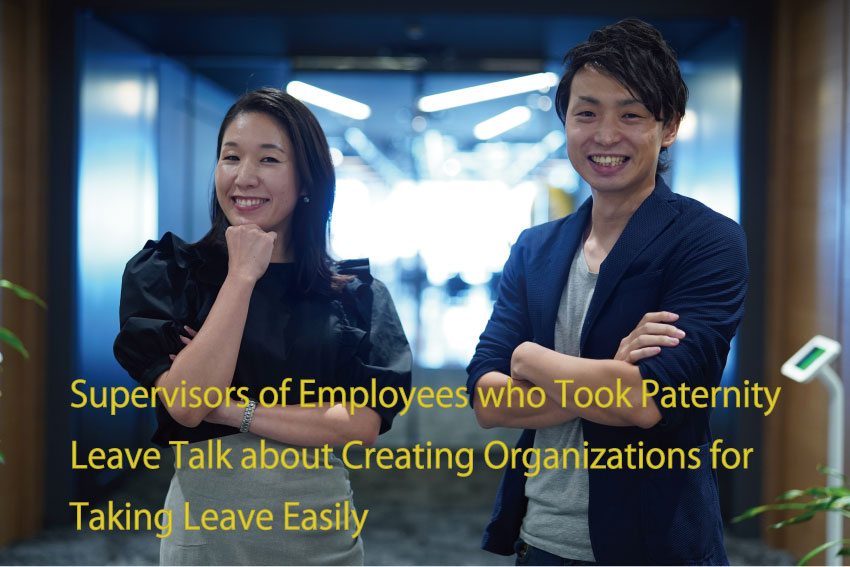Can people work comfortably even if they don't speak Japanese? Support for employees from all over the globe at LINE Fukuoka

CONTENTS
- ①Available support
An introduction to the support offered for LINE Fukuoka's employees from overseas - ②What expat employees have to say
LINE Fukuoka employees talk about their actual experiences coming to Japan with zero Japanese ability. - ③An interview with the Global Support Part
The passion behind support for employees from overseas
[Notice] Effective October 1, 2023, LINE Fukuoka has changed its company name to LY Communications. Articles published on or before September 30, 2023 were written with our former company name.
At LINE Fukuoka there are employees from 24 different countries and regions including Asian countries like Korea, Taiwan, Thailand and Indonesia, as well as other countries like the United States, Peru, Germany and Spain.
Employees like these make up 11% of our staff. (As of January 2020)
Not every position at LINE Fukuoka requires Japanese skills, so there are more than a few employees who can't speak Japanese when they come to Japan to work for us.
Employees like these make up 11% of our staff. (As of January 2020)
Not every position at LINE Fukuoka requires Japanese skills, so there are more than a few employees who can't speak Japanese when they come to Japan to work for us.
Leaving your comfort zone, to work in a country with a different culture and language isn't something that's easy for most people.
Some readers may be wondering if these employees can do their jobs while dealing with that kind of anxiety, and we're here to tell you that at LINE Fukuoka, we offer support for expat employees, even before they come to Japan.
But exactly what kind of support does the company offer?
And does that support really help in creating an environment that helps employees from overseas be comfortable and challenge themselves at work?
And does that support really help in creating an environment that helps employees from overseas be comfortable and challenge themselves at work?
We looked into the answers to those questions.
①Available support
First, let's look at the kinds of support available to employees.
Here at LINE Fukuoka, it is our belief that in order for us to provide a valuable service and experience to the end user, it is important that we ourselves be happy and healthy.
So we provide support for our employees so that they can work safely and healthily and bring out their individuality in the office.
LINE Fukuoka's Environment and Culture page Here at LINE Fukuoka, it is our belief that in order for us to provide a valuable service and experience to the end user, it is important that we ourselves be happy and healthy.
So we provide support for our employees so that they can work safely and healthily and bring out their individuality in the office.
In order create an environment where all staff, including members from other countries, can fully utilize their unique personalities, we offer visa support and Japanese lessons, as well as support through regular meetings.
And the team that carries out that specialized support is the Expat Staff Support Part.
And the team that carries out that specialized support is the Expat Staff Support Part.
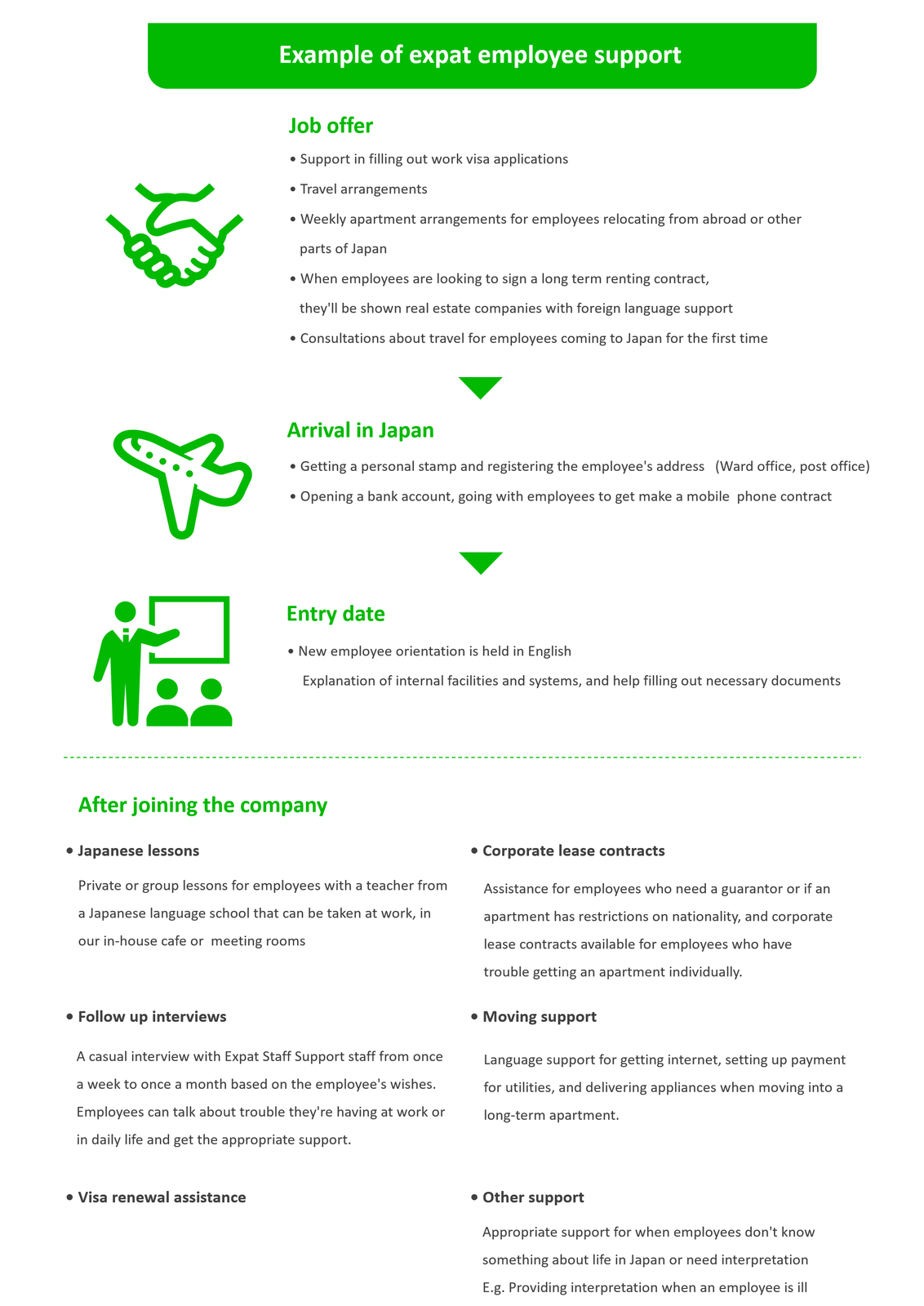
Note: Offered support is different based on each employee's Japanese ability and their wishes.
Support for global employees seems to include the paperwork necessary before they join the company to regular communication after joining, as well as helping to reduce unease and inconvenience that comes with living in a different culture. But how satisfied are the employees who actually use the system?
We sat down with two employees who started living in Japan because they joined LINE Fukuoka.
We sat down with two employees who started living in Japan because they joined LINE Fukuoka.
②An interview with two global employees
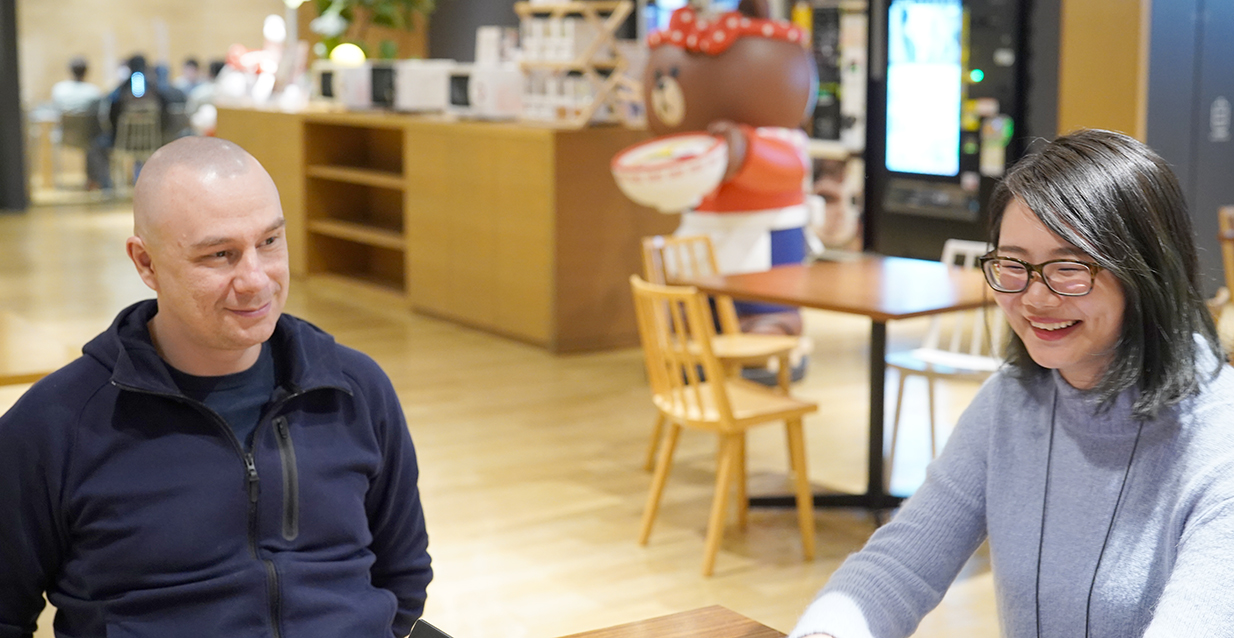
From the left, Mr. Dmitry Ratushnyy (joined the company in 2017 as an engineer, lived in Russia before joining) and Ms. He Wu (joined the company in 2017 as an engineer, lived in America before joining)
[ How they felt before coming to Japan ]
─ When you first decided to live in Japan, what were you most worried about?
Dmitry・ Wu:(Together) Learning Japanese!
Dmitry:When I first came to Japan, I didn't know any Japanese at all. None.
I learned the phrase "Sumimasen, Nihongo ga wakarimasen (Sorry, I don't speak Japanese)" from a friend in Russia, and then came to Japan.
I learned the phrase "Sumimasen, Nihongo ga wakarimasen (Sorry, I don't speak Japanese)" from a friend in Russia, and then came to Japan.
[ After arriving in Japan ]
─ What do you remember from when you first arrived in Japan?
Wu:When I first arrived in Japan, Ms. Anna (who had taken care of the visa processing as well) from the Expat Stuff Support Part picked me up at the airport, and I was really happy to finally see someone that I knew.
Dmitry:They helped us with everything that we needed for daily life before we joined the company like setting up a bank account, going to the ward office and getting a cell phone.
I didn't speak any Japanese at all at the time, so it was really relieving to meet someone that I could speak in English with.
Dmitry:They helped us with everything that we needed for daily life before we joined the company like setting up a bank account, going to the ward office and getting a cell phone.
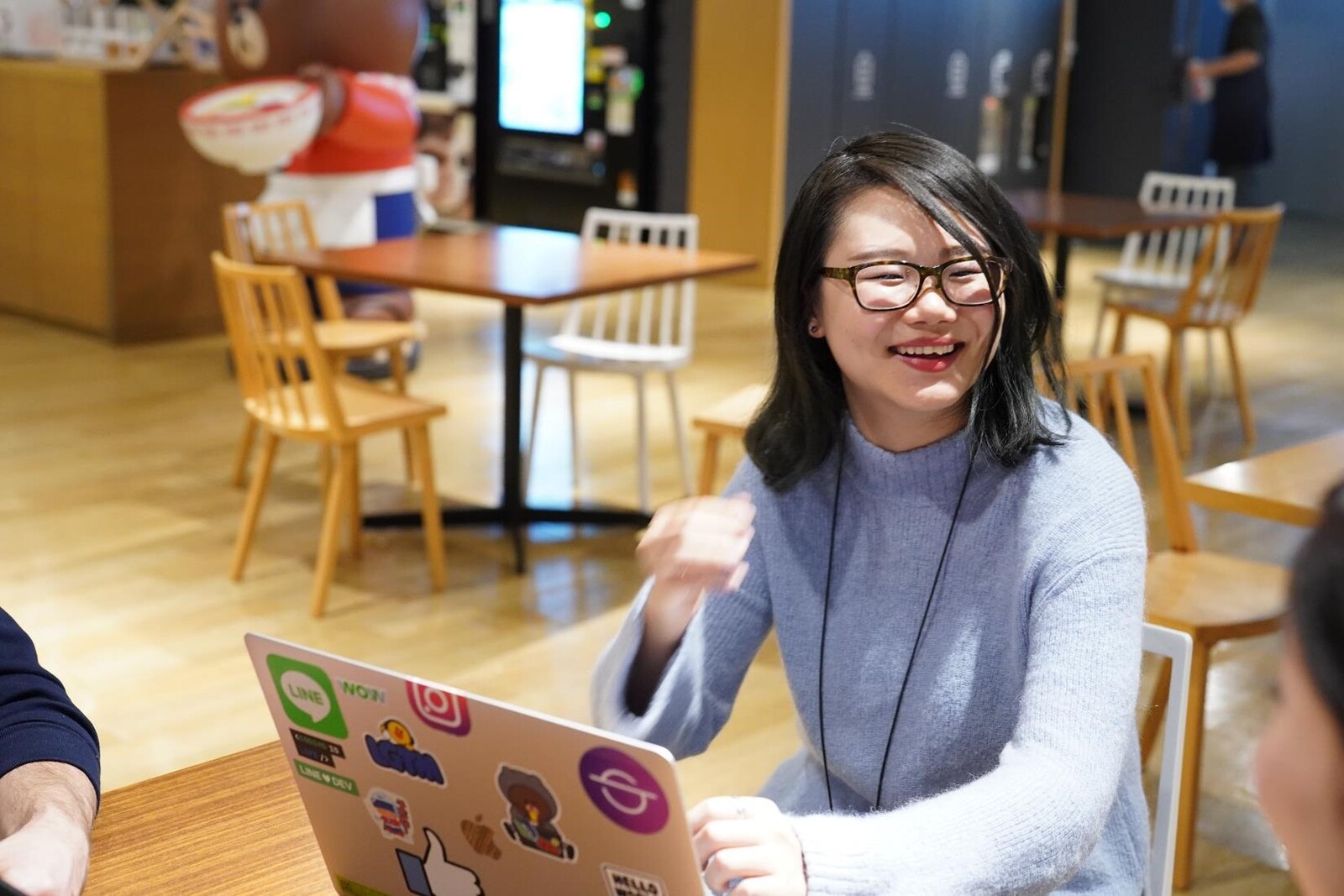
[ Work life after joining the company ]
─ Did you have any problems with communication after joining the company?
Wu:Thankfully the engineers I work with could communicate in English, so I didn't have any problems at work.
Dmitry:When I joined the company most of my team members were Japanese, but they spoke English, so I didn't have any problems.
[ Learning Japanese ]
─ Did you learn Japanese through lessons?
Dmitry:The in-house lessons were a big help for me. I didn't speak any Japanese at first, and now I can speak a little.
For my first month I took three 90 minute lessons a week, and started with learning hiragana and katakana. I still take two lessons a week now.
I also occasionally go to Language Exchange meetings outside of the office, and am learning by talking to Japanese people who are learning English, and people from other countries.
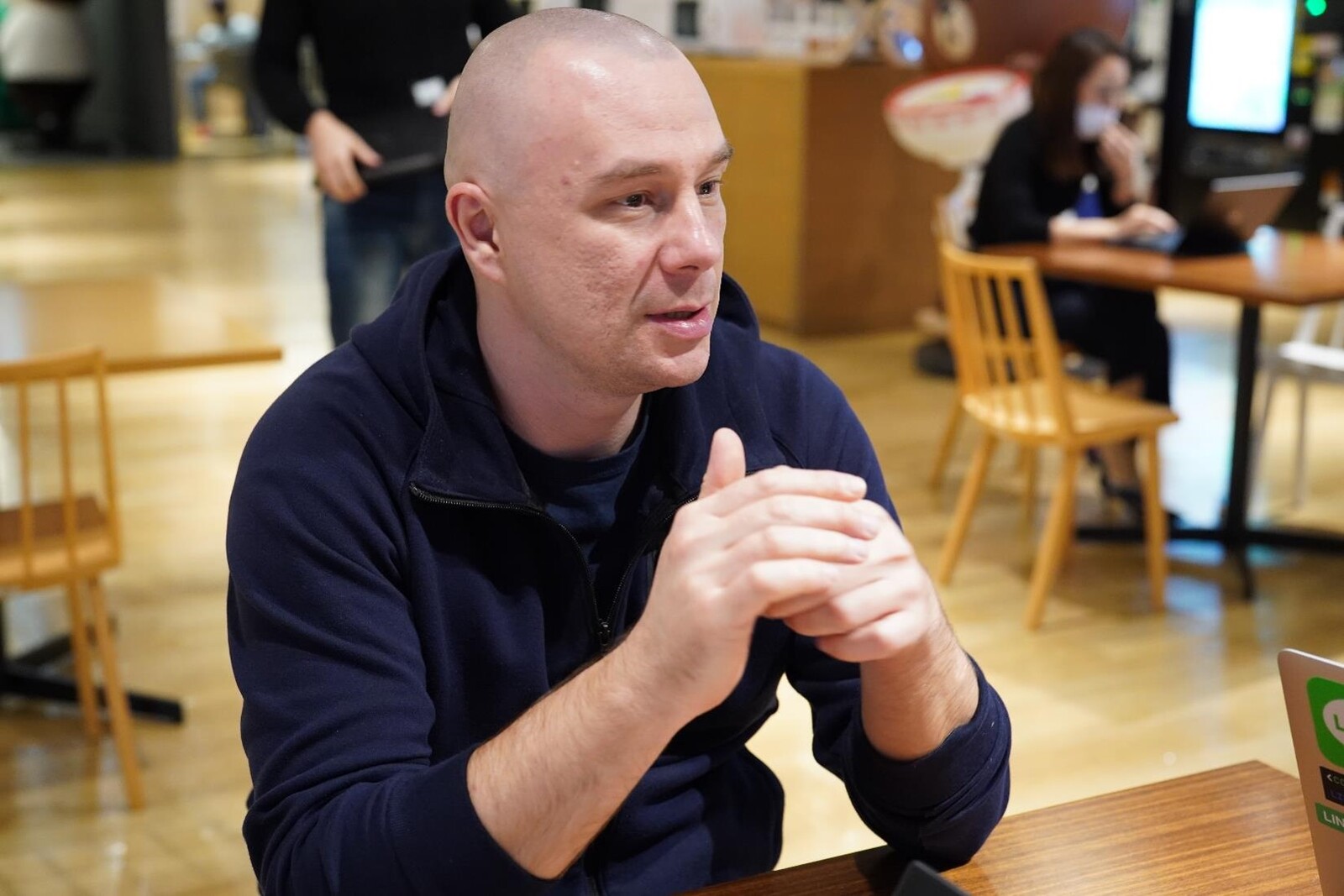
Wu:I also took three lessons a week at first.
I like anime, so I studied by myself as well.
But I think actually speaking Japanese with the instructor helped my pronunciation.
I was also able to pass N1. (N1 is the highest level of the Japanese Language Proficiency Test)
[ Daily life problems ]
─ In addition to worrying about learning Japanese, you probably also had questions about other cultural differences.
Wu:Ms. Anna and Mr. Tau from the Expat Stuff Support Part helped me a lot.
It's really hard to find information about visas on the immigration websites, and they were able to help me.
Dmitry:They've helped me in my daily life in many ways, from setting up a bank account to moving, and they also help when I have unexpected trouble.
For example, last week a credit card that wasn't mine arrived at my apartment. It was the previous resident's, but I wasn't sure what to do with an envelope I had accidentally opened, and they helped me.
For example, last week a credit card that wasn't mine arrived at my apartment. It was the previous resident's, but I wasn't sure what to do with an envelope I had accidentally opened, and they helped me.
And when I got invited to a wedding, they looked at the invitation, explained what was on it and told me about the etiquette for a Japanese wedding as well.
I ask a lot of questions, and I'm sure some of them were about things they hadn't done before as well. But in each case, they took the time to find the answer to my questions.
─ What kind of people are Mr. Tau and Ms. Mitsutomi from the Expat Staff Support part?
Wu:Mr. Tau is really reliable, he always helps me even when he's really busy. Ms. Anna is always full of energy, both of them are really great people. I also talk with them in the cafe, and go to lunch with them sometimes.
Learning Japanese isn't easy for most people. The two seem to be quite satisfied with the Japanese lessons, one of the types of support that LINE Fukuoka offers.
The two also mentioned Ms. Anna and Mr. Tau from the Expat Staff Support Part, and talked about the support and communication they received when they received wedding invitations or had unexpected accidents, and got help even when the answer wasn't clear at a glance.
It seems like they place a lot of trust in them!
It seems like they place a lot of trust in them!
③ An interview with the Expat Staff Support Part
So, lastly we also sat down with the two members of the Expat Staff Support Part, who act as support for all expat employees at LINE Fukuoka, helping them with visa paperwork and daily life problems.
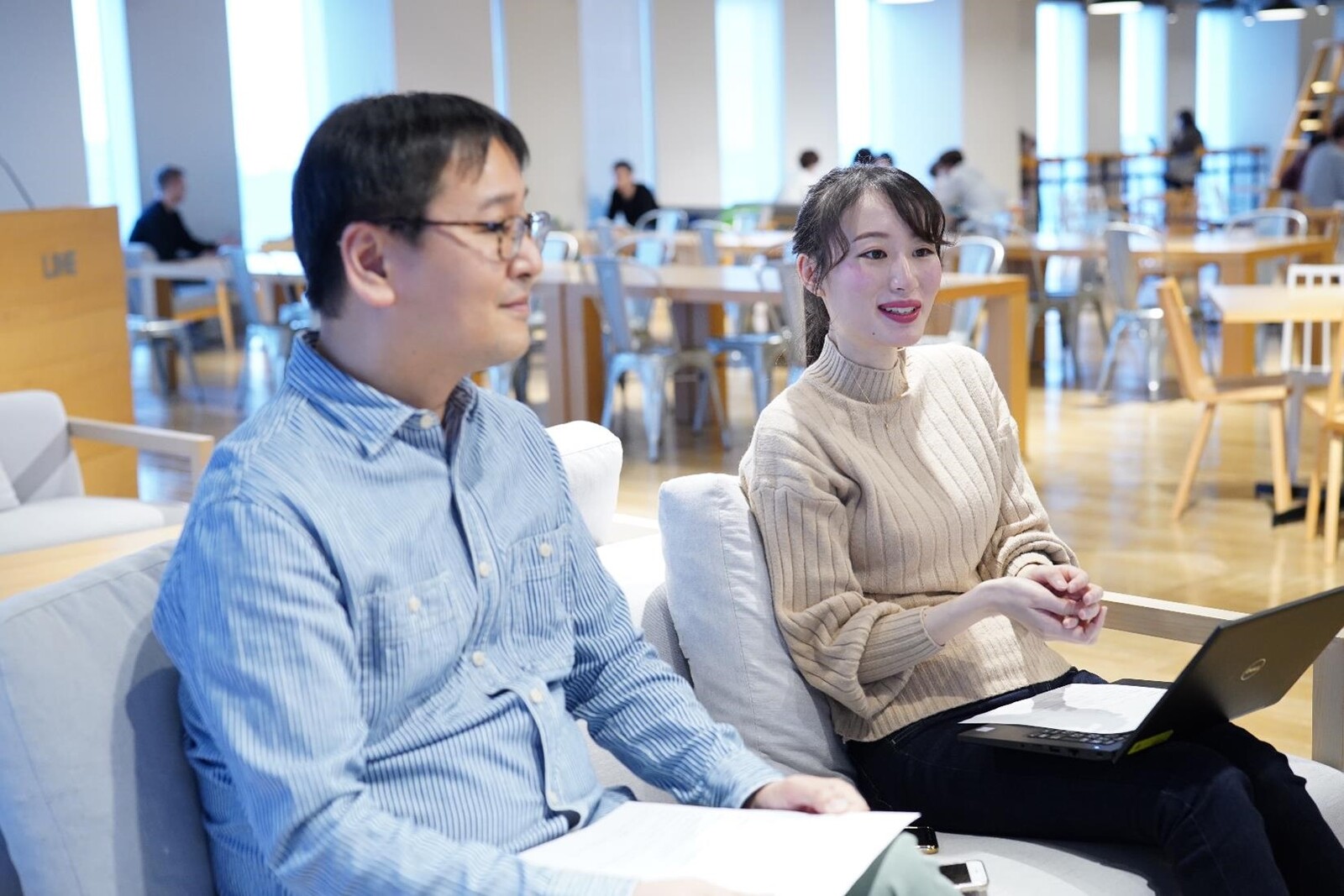
From the left, the Expat Staff Support Part's Mr. Jun Tau and Ms. Anna Mitsutomi
─ How did you decide on the support that you currently offer?
Mitsutomi:I joined the company three years ago, and that was around the same time we started hiring based on skills, and decided not to include Japanese language skills as a requirement. Providing support was just a part of our job in the general HR department, and there were employees responsible for English and Korean speaking employees.
We hadn't become a specialized department yet, and when the people in charge of that support got together for a discussion, we realized there was a gap in the content and scope of what we were offering.
We decided on what kind of and how much support to offer so that there wasn't a gap in the content or amount of information due to language gaps, created a manual and that shaped what our department looks like now.
We decided on what kind of and how much support to offer so that there wasn't a gap in the content or amount of information due to language gaps, created a manual and that shaped what our department looks like now.
─ What kind of things do you talk about in follow-up meetings after expats join the company?
Mitsutomi : I think there's a gap between the country they used to live and work in and Japan, so I ask them how things have been going recently, and if there's any problems they're having at work or in daily life.
And if there's something we think their department should take care of, we go straight to them and have them follow up.
Online meetings with other offices is one example. Interpreters will come to meeting rooms as necessary, but sometimes in addition to the meeting with people at the other location, their coworkers are having their own discussion in the meeting room, and sometimes that's in Japanese.
If that happens while the interpreter is explaining what the other location is saying, then it takes time for the employee to understand what's being said in the meeting room. That's something we think needs to be followed up on, so when we hear about those cases we go to the meeting rooms.
If that happens while the interpreter is explaining what the other location is saying, then it takes time for the employee to understand what's being said in the meeting room. That's something we think needs to be followed up on, so when we hear about those cases we go to the meeting rooms.

Mitsutomi :And for Japanese lessons, we get a report from their teacher after each lesson.
The teachers tell us about how they're making notes about words they don't know at work or in daily life and asking about them in lessons, or about new phrases that they've learned. It makes me really happy to hear about them trying their best, and gives me a chance to congratulate them on all their hard work in our interviews.
There's no set rule about the frequency of our meetings with the employees, but for staff who are living in Japan for the first time, we try to see them about once a week.

─ So you don't just support employees by giving them information, but are kind of like a consultation desk for each of these employees.
It almost feels like you're a big brother or sister for these employees, what are you careful about in communicating with them?
It almost feels like you're a big brother or sister for these employees, what are you careful about in communicating with them?
Tau:I might be closer to a father figure than a big brother. (Laughs)
I think that's because communication builds trust. There are people who think that because we're part of the company, then what they talk about will be related to their promotions or evaluations, but that's not actually the case.
We start out communicating like friends to build trust with each person, so that they don't feel that way. And at the same time, there are a lot of times where we hear about their private lives, and keeping that confidential is an absolute must.

Mitsutomi :I also communicate with them every day when I see them in the hallway or the cafe and ask them how they're doing, even outside of interviews.
Chitchat leads to a chance for them to ask us about things they've been meaning to, so rather than just a simple greeting, it leads to "Oh by the way what happened with xxxx?" or "Have you made any friends?" and other things like that.
I want to make sure we're always building an environment where we can be approached any time.
I want to make sure we're always building an environment where we can be approached any time.
If we're close, then people can talk to us as soon as something happens.
The faster they talk to us, the faster we can do something to help, so we're really careful not to create any barriers.
The faster they talk to us, the faster we can do something to help, so we're really careful not to create any barriers.
It's important for us to choose our words and how we communicate carefully, because some employees are quiet and don't talk too much, and some are the opposite.
And that type of communication isn't something you can decide based on nationality.
Just like how every Japanese person is different, expat employees have their own personalities too, even if they're from the same country. We don't assume things like "if so and so is from this country, they must be like this" and look at each person as an individual.
Just like how every Japanese person is different, expat employees have their own personalities too, even if they're from the same country. We don't assume things like "if so and so is from this country, they must be like this" and look at each person as an individual.
─ Please tell us about the situations you feel your job is most rewarding.
Tau:When the employees who couldn't speak any Japanese when they first joined start speaking to me in Japanese, or when I see them eating lunch with Japanese employees.
It makes me happy to see them doing so well.
Mitsutomi :Of course, not everyone has an open personality, and it takes time for some people to make friends.
It makes me really happy to see those kinds of people start to build a relationship with people in other departments, and hear about where they went and what they did with their new friends.
It makes me really happy to see those kinds of people start to build a relationship with people in other departments, and hear about where they went and what they did with their new friends.
When they first join the company, they have their hands full catching up with all of the new information. But after a few months, they start talking to me about how busy they're getting lately, or how they recently gave a presentation at a conference.
Just hearing those stories makes me really happy. The most important thing is that it looks like they're happy, too.
Just hearing those stories makes me really happy. The most important thing is that it looks like they're happy, too.
We want to create an environment where everyone can challenge themselves, even if there's a language barrier, so seeing them take on new challenges is great. I'm happy if our support is even just a little bit useful for them.

─ I see, it’s change and growth that you can see because you've built such a close relationship. Currently, the number of employees from overseas working in Japan is increasing every year, regardless of industry.
What kind of attitude do you think is necessary for the offices taking in these employees?
Mitsutomi :If you decide to take on employees from overseas, you have to have the strength to make compromises!
I want each employee to be seen individually, without dividing them into groups based on nationality. Rather than forcing the Japanese work style on someone because they're working in Japan, we need to understand that there's employees from different countries, and they each have their own way of thinking and backgrounds.
By compromising with each other and finding the middle ground, I think that we can create an environment that allows everyone to utilize their individual strengths.
The Expat Staff Support part has the passion to create an environment for everyone to challenge themselves even if there's a language barrier, and to face each employee individually without looking at their nationality. Those two concepts give our employees from overseas the push they need to overcome changes in language and life style and take on new challenges.
LINE Fukuoka's Corporate departments, starting with the Expat Staff Support Part, are behind every challenge that we undertake here. The LINE Fukuoka Press will continue to bring you the stories of our unsung heroes in the future. We hope that you'll take the time to read them as well!
For more information about our Corporate departments, please see these other interviews:
You can find recruitment information here:
You can also follow us on social media to get regular updates about the initiatives LINE Fukuoka is undertaking!
Related Articles
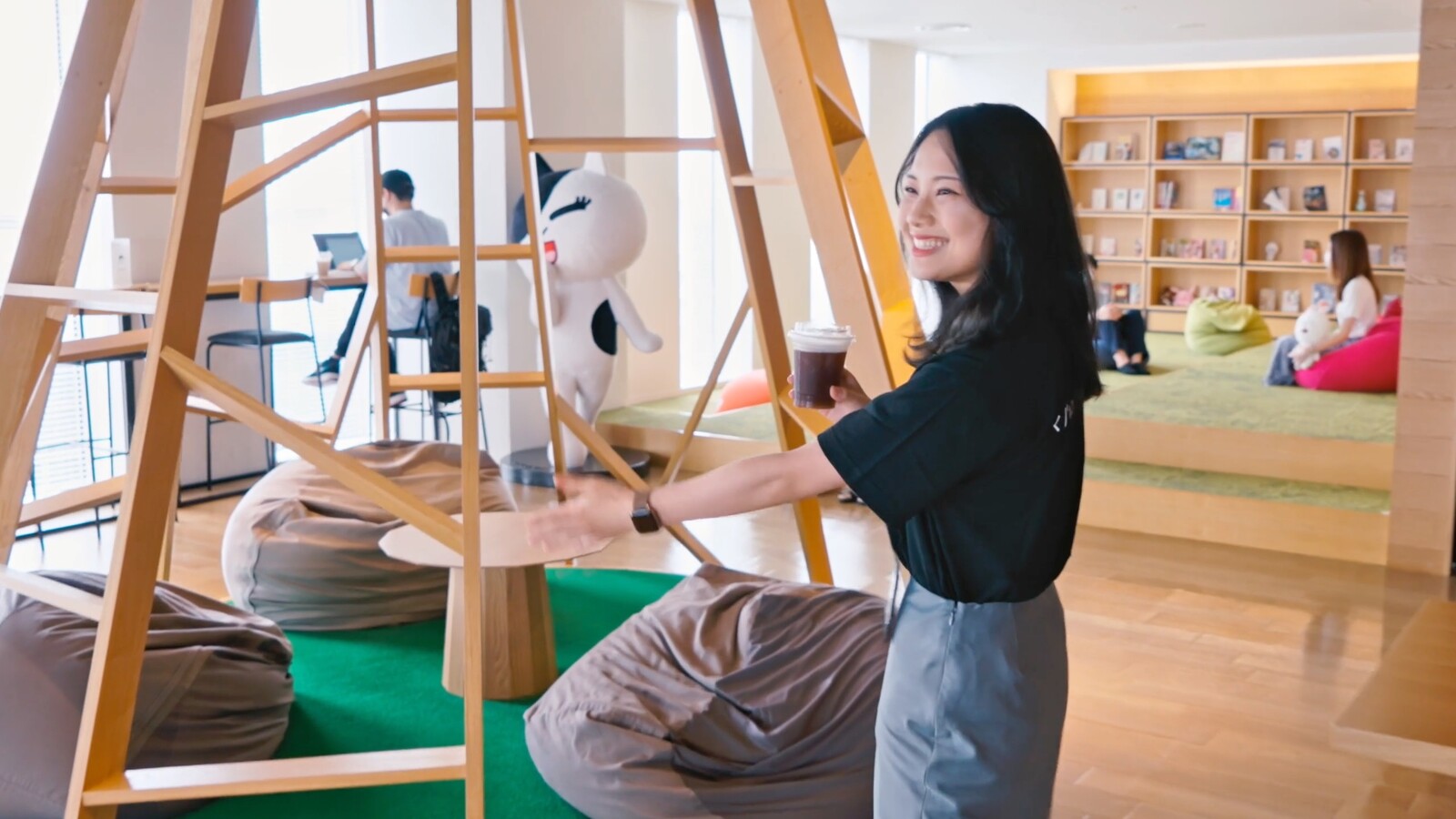
LINE Fukuoka Office Introduction|A Second Year Employee Introduces the WOWs Packed in the Office!

Changing Jobs During the Pandemic - From Corporate Sales at a Travel Agency to ︎Testing at an IT Company

Need a Break? Head to the Cafe!
